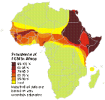Brenda86
Jedi Master
DHTH said:MethodOfMadness said:DHTH said:When I was 7-8 years of age I was circumcised. I still remember the pain after the removal of the foreskin. It was that intense, really.
The reason why this approach was used was to my knowledge that my foreskin was too narrow and needed to be removed.-
Hi DHTH
I think the 'too narrow' problem isn't really a problem at all if, from a young age like maybe 2-3, the parents while bathing their children manually clean their childrens genitals including carefully peeling back the foreskin. Overtime it stretches...but if parents don't clean the area properly then certainly it could be a problem....but even still morning and night manipulation of the foreskin would have eventually stretched it naturally, even if only starting from an age of 7.
Doctors are too quick to mutilate the body. I'm sorry for the pain you went through.
I agree with you that doctors are way too quick in their assessments when it comes to mutilating the body and in general I think. My parents have probably been to much "believers in the system" at the time and just took the word from the doctor as the only option. It is my impression nowadays there is other solutions offered .
Thanks for the empathy MethodOfMadness
I have also done some research about proper care of young boys genitals when they are intact as, especially in American culture, we are woefully ignorant of it. And apparently, parents trying to retract the foreskin manually before it's ready is actually one of the things that can cause infections and other issues because the foreskin is actually fused to the glans at birth and until it begins to separate and retract on its own trying to retract it can be very painful for the child and darn near impossible to really do.
This leads a lot of parents and doctors to wrongfully assume the foreskin is too tight when, in fact, the child just has not reached a point when the foreskin is retractable yet. The age it happens can be in toddlerhood all the way up to puberty. And then even if the foreskin IS too narrow there are other ways to treat this, such as topical steroid creams, that can loosen it up over time without resorting to such a drastic measure as circumcision.
I am just so flabbergasted sometimes by the thinking in circumcision cultures. In America, if a woman gets a genital infection, we treat it with antibiotics or anti-fungal creams, etc. If a man gets an infection... CUT OF THE FORESKIN or better yet... CUT IT OFF BEFORE HE EVER EVEN SHOWS ANY SIGNS OF A PROBLEM.
Edit for clarification.

 That is wonderful. I am so glad for your son. And for you, because I suspect an operation like that must be rough on some parents? :/
That is wonderful. I am so glad for your son. And for you, because I suspect an operation like that must be rough on some parents? :/ The amount of relief I felt when I learned that it is not necessary cannot be exaggerated. And then... upon learning that not only is it not necessary, but very probably quite harmful I got that familiar sick feeling in the pit of my stomach thinking about all the poor baby boys whose parents do not have or ignore the truth about it. :(
The amount of relief I felt when I learned that it is not necessary cannot be exaggerated. And then... upon learning that not only is it not necessary, but very probably quite harmful I got that familiar sick feeling in the pit of my stomach thinking about all the poor baby boys whose parents do not have or ignore the truth about it. :( Applied knowledge does protect. No question about it.
Applied knowledge does protect. No question about it.


